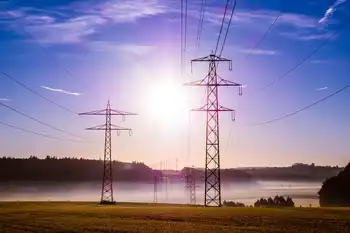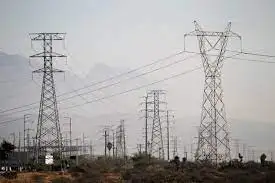U.S. Household electricity bills skyrocket
By USA Today
CSA Z462 Arc Flash Training - Electrical Safety Essentials
Our customized live online or in‑person group training can be delivered to your staff at your location.

- Live Online
- 6 hours Instructor-led
- Group Training Available
Households paid a record $1,419 on average for electricity in 2010, the fifth consecutive yearly increase above the inflation rate, a USA TODAY analysis of government data found. The jump has added about $300 a year to what households pay for electricity. That's the largest sustained increase since a run-up in electricity prices during the 1970s.
Electricty is consuming a greater share of Americans' after-tax income than at any time since 1996 — about $1.50 of every $100 in income at a time when income growth has stagnated, a USA TODAY analysis of Bureau of Economic Analysis data found.
Greater electricity use at home and higher prices per kilowatt hour are both driving the higher costs, in roughly equal measure:
•Residential demand for power dropped briefly in 2009 but rebounded strongly last year to a record high. Air-conditioners and household appliances use less power than ever. A new refrigerator consumes half the electricity as a similar one bought in 1990. But consumers have bigger houses, more air-conditioning and more electronics than before, outpacing gains in efficiency and conservation.
"People have made a lot of money selling weight loss programs. It's the same for energy. Behavior is hard to change," says Penni Conner, vice president of customer care at NSTAR, a Boston-based utility.
•Prices are climbing, too, hitting a record 11.8 cents per residential kilowatt hour so far this year, reports the Energy Information Administration. The increase reflects higher fuel prices and the expense of replacing old power plants, including heavily polluting — but cheap to operate — coal plants that don't meet federal clean air requirements.
"Higher bills are a huge problem for low income families," says Chris Estes, executive director of the North Carolina Housing Coalition, which opposes a proposed rate hike in its state by Duke Energy. "Utilities are what people's budgets start with."
Duke Energy says the rate increase is needed to pay for replacing old power plants and making the transmission system more reliable. The Charlotte-based utility has reached a tentative agreement with North Carolina to raise rates 7.2 in February, lower than its original 17 request.
"The industry as a whole is facing higher costs because we're retiring our aging fleet" of power plants, says Duke Energy spokeswoman Betsy Conway.
Electricity cost varies widely depending on where you live. Cheapest: Northwest communities near hydropower dams — as low as 2 cents per kilowatt hour. Most expensive major utility: Consolidated Edison, supplier of New York City — 26 cents per kilowatt hour, according to EIA.
High taxes, limits on air-polluting fuels and the expense of maintaining an underground transmission system keep consumer costs high, says ConEd spokesman Chris Olert.
A potential bright spot: Electric bills appear roughly the same so far this year as last when adjusted for inflation, based on preliminary reports.
However, the future of energy prices and the upcoming closure of more polluting coal plants makes the long-term outlook cloudy for consumers. Duke Energy plans to ask for another rate hike next year to cover the costs of new natural gas-fired plants.











